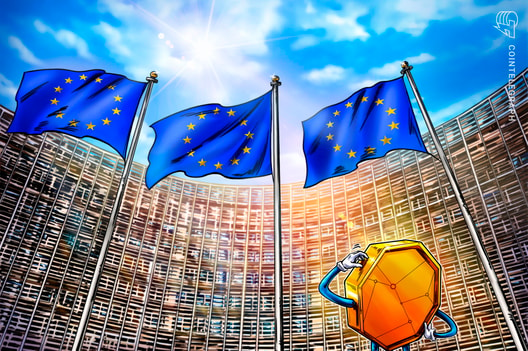European Commission’s Web4 strategy may fail
On 11 July, the European Commission officially accepted the new one. Strategy on the web4 and on virtual worlds, in order to providean open, secure, reliable, fair and inclusive digital environment” For the citizens of the European Union. The strategy aims to empower people, support companies, further develop public services and Setting global standards for “Web 4.0”A newly coined term intended to predict the next wave of technology.
While it is admirable that the European Commission is strategically considering making the EU a leader in Web 4.0 and virtual worlds, despite all the hyperbole and accompanying trends about Web3, we must not forget that: The main credit and financial institutions have so far only and mainly relied on Bitcoin (bitcoin) and to a lesser extent Ethereum.
In fact, it’s hard to argue that Web3 has had any effect other than a momentary surge of interest in Lamborghini and Rolex. The sooner this term is forgotten, the sooner we can return to focusing on what really matters.
The European Union’s stance against Bitcoin has in some ways “ruined” its reputation as a visionary and avant-garde community: it would therefore be a good move to correct previous positions on issues such as Proof-of-Work mining. A change in the monetary paradigm is very complex: if the EU wants to take over the reins of digital change, it must do so by moving the project to the digital euro and at the same time supporting the flip side of the coin. position to minimize risks and maximize possible opportunities.
That is why the European Central Bank should get its head out of the sand, as they say, by limiting the famous Fabio Panetta’s anti-Bitcoin articles and adopting a neutral monetary and technological stance.
European Union introduces Web4 and virtual worlds strategy
The strategy is aligned with the 2030 goals of the Digital Decade policy program and the three pillars of digitalisation: skills, business and public services.
General view of the EU economy… pic.twitter.com/lg1X5Yvccj
— FanBe_web3 (@FanBe_web3) 12 July 2023
As for the core of the proposed Web4 strategy – the so-called digital pairing – It is clear that the EU is facing a strong threat. Competition from giants like the United States and China in digitally dominant fields such as artificial intelligence. On the one hand, if the advantageous position of the EU in areas such as the production of goods and global exports can be discussed, on the other big gap in technology arenasuch as the cryptocurrency and cloud computing industry.
For the EU to assume its leading role at the intersection between the physical and digital worlds, it will need to accelerate its efforts to foster the spread of niche digital sectors such as cryptocurrencies, which present excellent opportunities given the current market impasse. . Most innovations, such as decentralized finance (DeFi) and decentralized autonomous organizations (DAO) – considered temporary trends that have come out of the limelight recently, it is clear that we are still in their infancy on these issues: optimally positioning yourself while the general attention is diverted elsewhere will likely pay off in a few years..
Also read: Demand will push Bitcoin’s price to $130,000
In particular, when it comes to DeFi, the European continent has quietly taken the lead, with countries like Italy and France spawning some of the most important projects in the industry. In this sense, the advantageous position achieved in the world market cannot be ignored: While the total locked value (TVL) is still well above the threshold of 45 billion dollars, DeFi took the brunt of the bear market and never dropped. The next market reversal will likely bring it back into fashion as well.
with innovations such asERC-4626It’s safe to say that we have yet to see the true strengths and potential of DeFi, which is poised to unlock a host of exciting new perspectives in the industry: If the EU can take the helm in the future and lead innovation, it will consolidate its place in the inevitable financial revolution that has been brewing for several years.
In the last decade, cryptocurrencies have been unsuccessfully reinvented and reshaped. The promise of a new form of money still remains the strongest premise, but digital assets need a digital-friendly environment to thrive. The lessons learned from the repeated failures of some security tokens should be fresh enough to highlight the fact that we are not yet ready for a seamless intersection between the digital and the physical: for both, subjects succeed simultaneously, There should be a comparable, if not the same, level of efficiency..
This is something that is still sorely lacking in the EU when it comes to digital assets and cryptocurrencies, so these issues need to stay on the agenda in the near term.
Jonathan Galea He is the CEO and founder of BCAS, a European crypto regulatory consulting firm. He has advised numerous regulatory bodies in different jurisdictions on cryptocurrency-related matters, including the structuring of new legal frameworks. He holds a PhD in law from the University of Malta.
Matthew Vena He is chief strategy officer at BCAS, a Europe-based cryptocurrency-focused regulatory advisory firm. His area of expertise is business strategy and marketing in the Bitcoin and digital assets industry. He previously served as managing director of Cointelegraph Italia and head of content for Blockchain Week Rome.
Translation of Giorgio Libutti

